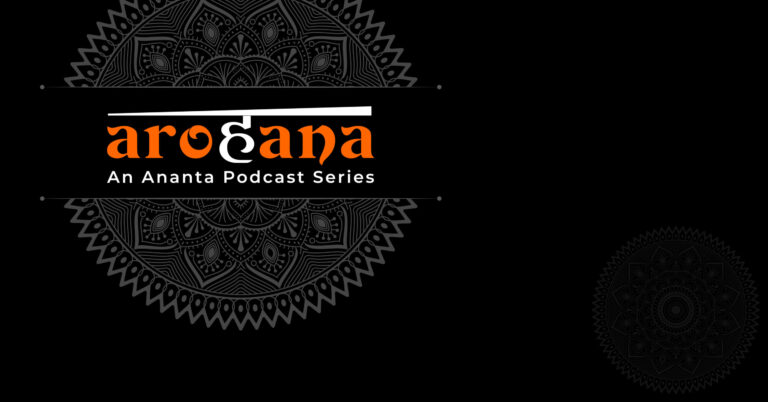Overview
Russia-Turkey “marriage of convenience” on the rocksRussia endorses US-Taliban dealSnippets: US-Central Asia, Ukraine backtracking, coronavirus frictions
Mutual recriminations replaced Russia-Turkey understanding on Idlib
The delicate balance between Russian and Turkish interests in Syria was destroyed in February, as Syrian troops (reportedly reinforced by Iran-backed militants) used Russian air cover to launch an all-out attack on Idlib to retake the last rebel-held province. In the escalating military confrontation, about 60 Turkish soldiers were reported to have been killed in different operations, causing Turkish retaliatory actions on Syrian air and ground assets. Four Russian special forces personnel were apparently killed. The rebels’ use of Turkey-supplied mobile air defence systems, threatening Russian control over Syrian airspace, apparently provoked stronger Russian assertion of its control of Syrian airspace.
As described in earlier Reviews, Russia has been trying, over the last two years, to reconcile the Syrian government’s thrust to re-take Idlib and Turkish interests in the region. Mindful of the larger context of Russia-Turkey relations, Russia has restrained its criticism of Turkey’s failure to implement the Putin-Erdogan Sochi agreement of September 2018, tweaked in April 2019 (see Reviews 9/18 & 4/19), to secure the Idlib de-escalation zone by isolating terrorist elements. However, as the terrorist outfit Hayat Tahrir al-Sham (HTS) drew in the other rebel elements, expanded its base in Idlib and continued to attack Syrian forces and Russian bases, Russia increasingly provided air cover for Syrian attacks on HTS targets in Idlib. However, President Putin has restrained such military actions in response to appeals by President Erdogan. The prospect of large-scale civilian casualties, exacerbation of the refugee situation and criticism from the US and Europe (with which Russia was in various stages of negotiation over a range of their differences) also encouraged Russian restraint.
The decision to escalate military action now may have been motivated by a number of considerations. Increasingly open Turkish support for HTS actions may have been one. Another may have been the desire to consolidate Syrian control over its territory to strengthen its position at the negotiations in Geneva for a Syrian political settlement. American preoccupation with domestic issues may also have contributed to the timing. In any event, the actions intensified, drawing tough talk from President Erdogan, which was mostly responded to by the Russian Defence Ministry. The strategic town of Saraqib saw fierce action, apparently changing hands between the Syrians and the Turkish backed rebels. Syrian forces reported gains in areas surrounding it. Reports indicated that, in the face of Syrian advances, Turkish troops were inducted to fight alongside the rebel forces, leading to the casualties. The Kremlin reported four telephone calls by President Erdogan to the Russian President in February, at which the two leaders agreed to intensify bilateral consultations to ease tensions; but it did not result in any abatement of action. Russia was reported to have offered in mid-February that the military action could be suspended if Turkey agreed to Russian checkpoints in Turkish-controlled areas of Idlib and joint Russian-Turkish patrols ensuring normal road traffic between Damascus and Aleppo, passing through Idlib. This was not acceptable to Turkey, as it would nullify its goals in the province.
President Erdogan also did not particularly endear himself to Russia by his early February visit to Ukraine, when he criticized Russia’s “illegitimate takeover” of Crimea and promised military supplies. In subsequent statements, he sought to make amends by recalling the multifaceted relationship with Russia and by directing all his aggressive statements towards the Syrian government, avoiding direct criticism of Russia.
However, Russian Foreign Minister Lavrov said frankly to the media that Turkey had not lived up to its promises made in September 2018: to dissociate normal opposition from terrorists, demilitarize the inner belt in this zone, to curb attacks on Syrian forces and Russian military bases and guarantee use of the highways, to Alleppo and Damascus that passed through this region. Under the circumstances, he said, the Syrian forces could not be blamed for acting against terrorists on their territory.
In a further rare public display of Russian unhappiness with Turkey, the Kremlin said that the Russian security council meeting, chaired by President Putin, noted on February 28 the “dramatic escalation of terrorist activity” against the Syrian army from the province. It also noted that Turkish military observation posts, established by agreement with the Russians, were meant to prevent terrorist activities, but had not accomplished this mission. Moreover, the tragic loss of lives of Turkish soldiers occurred because they were among the terrorists against whom action was being taken, though they were not supposed to be outside their observation posts.
There was predictable criticism from the West about the humanitarian crisis and civilian casualties caused by the military action. From Turkey’s perspective, this criticism was not strong enough and did not have impact on the ground. European countries’ warnings of a humanitarian disaster led only to calls for Russia and Turkey to reach agreement on a ceasefire. The US and other Western countries got an emergency meeting of the UN Security Council convened, but it did not result in even a strong statement, let alone a resolution (which Russia would in any case have vetoed). The US response also fell well short of what Turkey would have hoped for. Secretary of State Pompeo said the US was “reviewing options” to assist Turkey against “further Assad regime and Russian brutality”, but there was little more.
President Erdogan announced in end-February that he would sort out issues with Russia in a meeting with President Putin in the first week of March. After first denying plans for such a meeting, the Russians announced it had been set for March 5. Initial indications of the outcome of that meeting were that Turkey had more or less accepted the Russian offer of two weeks earlier, which it had rejected and which, if implemented (a big if), may dent Turkey’s Syria plans.
Both sides have strategic and economic reasons to cooperate. Therefore, concessions on Idlib could be compensated by some in Libya, the eastern Mediterranean or elsewhere.
Meanwhile, there were hints of a new Western approach at the Syrian Constitutional Committee deliberations in Geneva. Statements by US and some western officials imply that HTS (which continues to be classified as a terrorist organization by the UN and US, but not by EU countries) had purged itself of extremist elements and now represented a genuine opposition to the Assad government – a position which Turkey would welcome and which might influence the course of the UN-brokered Syrian constitution deliberations.
Russia endorses US-Taliban deal
In a statement on March 2, the Russian Ministry of Foreign Affairs (MFA) welcomed the US agreement with the Taliban in Doha of February 29, describing it as an important step towards ending the war and to an early launch of intra-Afghan negotiations on the post-conflict stabilisation. Even while welcoming the agreement and noting that Presidential Special Representative for Afghanistan Zamir Kabulov would attend the signing ceremony, the MFA did not miss the opportunity to highlight the irony of past American accusations that Russian dalliance with the Taliban promoted terrorism. More recently, however, as described in earlier issues of this Review, the US and Russian Special Envoys on Afghanistan have cooperated in facilitating an agreement.
Snippets
US emphasizes ties with Central Asia: US Secretary of State Pompeo and his counterparts in the five Central Asian countries held a C5+1 meeting in Tashkent and issued a joint statement, which reaffirms continued US support for their sovereignty, independence and territorial integrity, calls for expanded cooperation in trade, investment, energy, transport, logistics and infrastructure, and promises initiatives to improve the “scientific, technological, social and innovation development of the region”. This is a part of an energetic US effort (intensified during the Trump Administration) to strengthen links with Central Asian countries, increasing their political and economic leverage vis a vis Russia (and China). The effort has included President Trump receiving the leaders of Kazakhstan and Uzbekistan in the White House.
Russia warns against Ukrainian backtracking: The implementation of decisions agreed at the December 2019 “Normandy Four” summit meeting in Paris continued to face strong opposition within Ukraine (see Review, 1/20). Responding to this, senior Ukrainian ministers have publicly called for renegotiation of the Minsk agreements, Ukrainian control of the borders with Russia and UN peacekeeping troops in eastern Ukraine – all non-starters for Russia. Ukrainian President Zelenskyy tried to restore some balance to the debate, maintaining that he remains committed to repairing relations with Russia. The Russians are still sceptical that he can overcome the domestic opposition. In his telephone call with President Putin on February 14, the latter (according to a Kremlin statement) “put the question bluntly – does Kiev intend to fulfil the Minsk agreements in practice?” The “complete and unconditional implementation of the Minsk Package of Measures”, as reaffirmed at the recent Paris summit, was also discussed in President Putin’s telephone conversations with the French and German leaders.
Russia’s vigorous Coronavirus measures annoy China: Russia reacted with great speed to contain the contagion from Coronavirus, particularly after its first case was reported on February 1. Besides strengthening the domestic healthcare infrastructure, restrictions were progressively imposed on travel to and from China. The visa-free travel agreement with China was suspended in early-February. Russia also suspended the issue of work visas and e-visas to Chinese nationals. Border crossings were closed along almost the entire length of the Russia-China border. Evacuations were organised for Russians in and around Wuhan. There were reports that Chinese workers in the Russian Fareast were being laid off. Going well beyond all these measures were reported instructions to the drivers of Moscow’s public transport vehicles that they should immediately report to the police, if they saw any Chinese passengers using the transport system. The Chinese embassy in Moscow issued a strong note to the Moscow authorities, criticising this discrimination against Chinese nationals and warning that such actions “will harm the good atmosphere” of Russia-China relations.
*******
…………………………………………………………………………………………………………………
(The views expressed are personal)
The Author can be reached at raghavan.ps@gmail.com
…………………………………………………………………………………………………………………


























